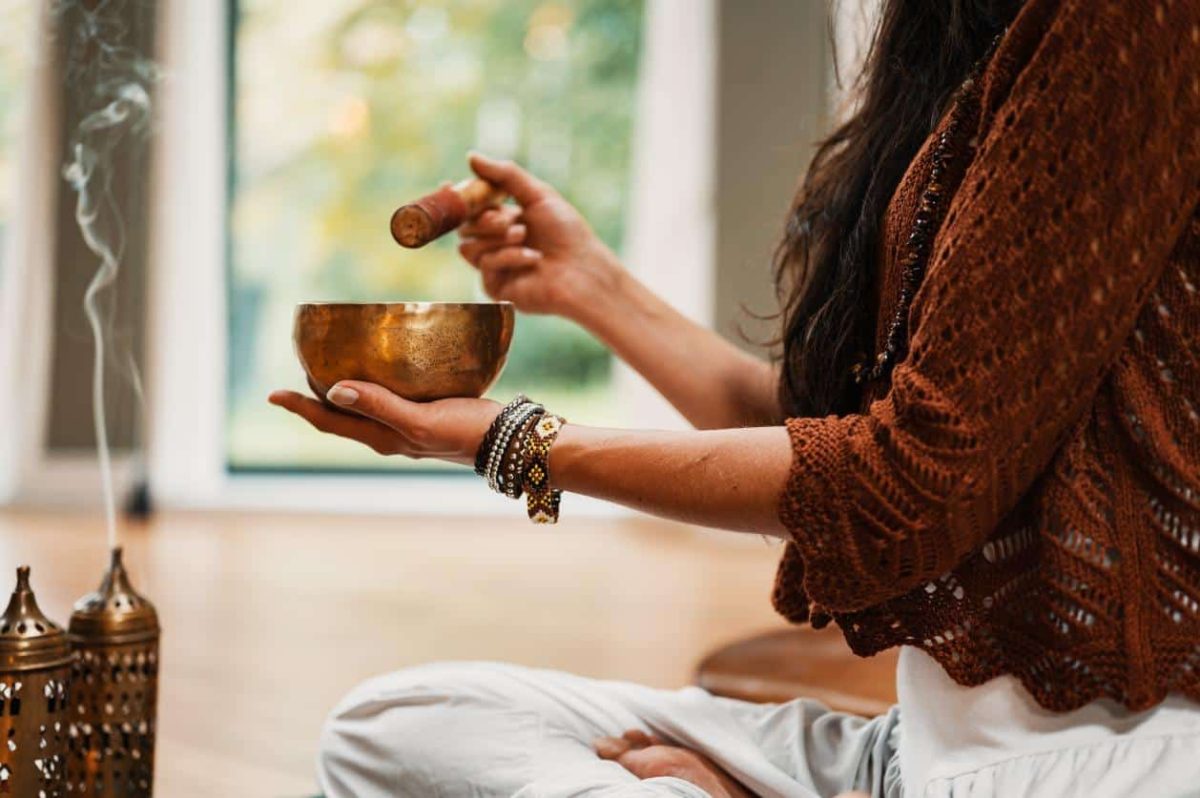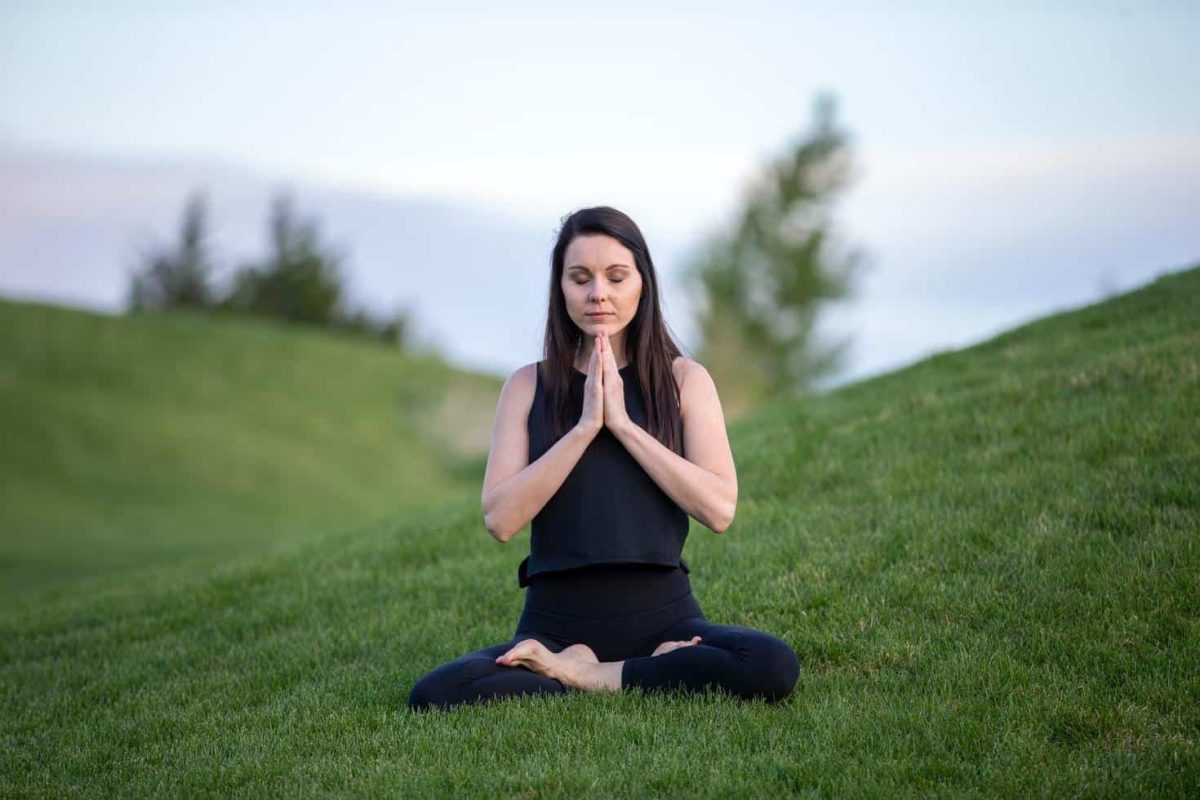If you are a meditation beginner, you might have asked yourself: How long does meditation last?
You should be consistent if you hope to see positive emotional, physical, and psychological results.
Is being consistent enough?
Yes and no. This answer might sound confusing, so let us clarify. To reap the benefits of meditation and mindfulness, you must focus on the type and duration. Each meditation technique offers different advantages. Before you begin meditating, ask yourself what you are hoping to achieve.

The benefits of meditation are endless, from a spiritual connection to mind and body relaxation, increased energy, and more. If you have a stressful job, perhaps you could indulge in a 2-minute meditation session to calm yourself down.
Types of Meditation Techniques
According to a study published in the journal Mindfulness, the most popular meditation techniques among adults and seniors are breathing exercises, sitting meditation, and a body scan. However, this information shouldn’t stop you from trying other techniques.
Following are a few more types of mediation:
- Mantra Meditation
- Metta Meditation (Reciting positive phrases to foster a loving, kind, and compassionate state of mind)
- Spiritual Meditation
- Visualization Meditation
- Walking Meditation
- Focused Meditation
- Transcendental Meditation
The Science of Meditation
Researchers have identified five characteristics that determine how effective meditation is. These include:
- Enjoyment
- Cultural relevance, competence, and understanding of your technique’s context
- During of practice
- Frequency of practice
- Adherence to the instructions of the technique
So, how long should your meditation last?
According to a study published in the journal Behavioral Brain Research: The ideal meditation session should last 13 minutes. The study concluded that eight weeks of meditation for 13 minutes daily decreases anxiety and negative mood, improves memory, and enhances attention. From this study, we learn that daily, brief meditation sessions can have a positive effect.
Another study published in the Journal of Clinical Psychology revealed that meditating for longer hours offers better psychological outcomes. Once you develop a liking for mediation, you will automatically increase your duration. A study published in the journal of Emotion found that when mediators experienced positive emotions after their first session, they increased the length and frequency of meditation.
How Effective Are 10 Minutes of Meditation?
As said earlier, meditation’s effectiveness depends on your meditation style and goal. Let’s say you are a beginner and want to reduce stress. In this case, 10 minutes are plenty. However, if you aim to increase concentration and develop calmness, you should practice for at least 30 minutes. Breathing techniques and light stretches will help you train without exhausting yourself. Here are a few other benefits of meditation:
- Controls anxiety
- Can help people be more empathetic
- Helps control pain
- Enhances self-awareness
- Can help reduce age-related memory loss
- Improves sleep
- Decreases blood pressure
- Can help overcome addictions
Remember: Consistency is at the core of meditation. Avoid taking even a day’s gap in the first month. This way, you will be able to develop a routine and make adjustments accordingly.
When Is the Right Time to Meditate?
Don’t limit yourself by deciding to meditate during certain hours of the day. You can switch it up according to your schedule. However, you do need to pick an appropriate time based on your mood. Ideally, the best time to meditate is when you feel happy and light.
Instead of focusing on the time, focus on the type of meditation. Morning meditation should be short and straightforward. Starting your day by practicing self-care and being a little mindful will make you feel energized. Meditating at night will help you counterbalance the information you have taken during the day.
You can even meditate while sitting in your chair in the office. If you experience a mental block in the middle of a brainstorming session, find a quiet spot, relax in your chair, close your eyes and breathe in and out until you feel centered.
Meditating for Long Hours
Beginners often try to meditate for longer hours because they are inspired by pictures of monks and Buddhist practitioners, who blissfully meditate for hours without a break. People who can follow in their footsteps have either received training for years or have been practicing intensive discipline.
If meditation has benefited you but can’t find the focus for longer sessions, we suggest you seek help from a qualified and professional meditation teacher.
Short-Term and Long-Term Effects of Meditation
It takes a couple of weeks for meditation to show its positive effects. One change that you will notice in yourself immediately is that you will be calmer. Breathing is at the heart of meditation, allowing you to master the art of staying focused. The more you practice, the more you pave a new path that helps you declutter your mind and avoid distracting thoughts from taking over. Eventually, you will stop focusing on how much time has passed since you began your session.
Mediation is not for you if you are looking for a quick fix. Its benefits usually arrive when you least expect them through an unmarked door. You will notice your mood is lighter and your attitude is less negative. With meditation, you will also be able to do tasks patiently and handle things responsibly.
The long-term effects of meditation cement your beliefs and change your perspective on life. These include:
- Heightened motivation
- Enhanced cognition and memory
- Improved communication
Final Thoughts
Improved focus, calmness, and clarity are the potential mental benefits of meditation. By setting time aside to meditate, you find clarity and the calmness to deal with the challenges in life. It is usually advised that you should start small when doing something instead of rushing into it. Hence, 13 minutes is the perfect amount of time for beginners.
Meditation is patience. Think of a jar full of dirty water. Once you put the jar on a stationary surface, the dirt settles at the bottom, giving you clear water. That’s how meditation is. It takes time but sticking to it will bring you positive results.
















